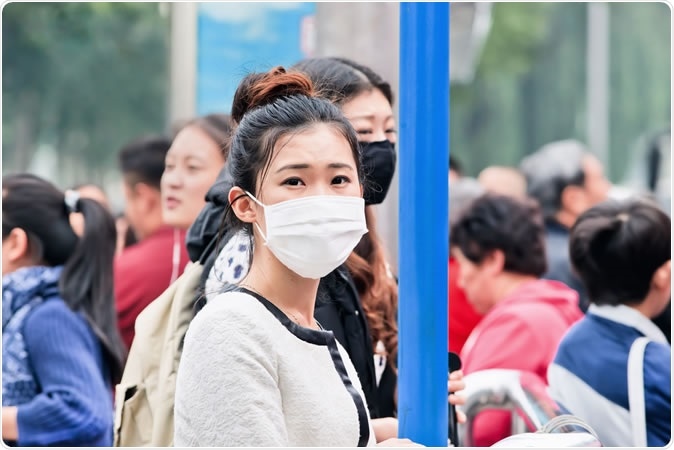Miscarriage happens when an embryo or fetus dies before the 20th week of pregnancy. In some cases, pregnant women experience silent miscarriage, also known as missed abortion. It happens when the fetus failed to develop or has died.

Image Credit: TonyV3112 / Shutterstock
The most common cause of abortion is genetic abnormalities, accounting for 50 to 65 percent of all miscarriages. Other factors include an inflammatory reaction, autoimmunity, and maternal smoking.
Now, a team of researchers from Chinese universities has found that exposure to airborne pollutants raises the risk of missed miscarriages or silent miscarriages, wherein the fetus dies inside the womb without the mother experiencing noticeable symptoms.
In the past, there was a growing evidence suggesting that exposure to air pollution could affect fetal development. Hence, the researchers went on to determine the link of high levels of air pollution and missed miscarriages.
To land to their findings, the researchers evaluated data from more than 250,000 pregnant women in Beijing, China, from 2009 to 2017. Published in the journal Nature Sustainability, the study has shown a link between pollution and health problems, particularly among pregnant women.
Link between air pollution and miscarriage
Air pollution has already been established to increase the risk of premature birth, life-threatening health complications such as pre-eclampsia, low birth weight, and gestational hypertension. But its impact on missed miscarriage or silent miscarriage has not been proven.
Researchers from over 16 universities in China examined the records of the participants. Among all the records, about 17,497, accounting for 6.8 percent, were found to have experienced missed miscarriages. They also found that the change of having a missed miscarriage increased in areas with higher concentrations of air pollutants.
Moreover, those who were older than 39 years old when they became pregnant, farmers, and those with blue-collar jobs, were at higher risk of silent miscarriage linked to air pollution.
“This means that the risk increase is not linear but becomes more severe the higher the pollutant concentration. The findings provide evidence linking fetus disease burden and maternal air pollution exposure,” the researchers concluded in the study.
The researchers also discovered that those who were exposed to higher levels of air pollution had an increased risk of missed miscarriage, but they didn’t directly test if there’s a causal relationship. The researchers recommend pregnant women or those who are trying to get pregnant to protect themselves from exposure to air pollution, not only for their own health but also for the developing fetus.
Air pollution still a burden
The authors of the study defined air pollution as containing four pollutants, namely sulfur oxide, carbon monoxide, ozone, and fine particulate matter or particulate matter 2.5 (PM2.5).
"China is an aging society and our study provides an additional motivation for the country to reduce ambient air pollution for the sake of enhancing the birth rate," the study authors added.
China has long been struggling with air pollution, with work and school suspended on days when the smog is thick and there’s almost zero visibility. Five years ago, the Chinese government has launched a program on war on pollution, but air pollution levels in various cities in the country are still extremely toxic.
Air pollution is a major problem and issue in China, and smog is increasingly frequent to severe in most cities. Also, there have been studies linking air pollution and many adverse health effects. In Beijing, for instance, the levels of PM2.5 or particulate matter 2.5, the pollutant that can be inhaled deep into the lungs, are still four times higher than those recommended by the World Health Organization (WHO).
Beijing has an average hourly PM2.5 reading of 42.6 micrograms per cubic meter or air in the first eight months of 2019.
Journal reference:
Zhang, L., Liu, W., Hou, K., Lin, J., Zhou, X., Tong, X., Wang, Z., Wang, Y., Jiang, Y., Wang, Z., Zheng, Y., Lan, Y., Liu, S., Ruijing, N., Liu, M., and Zhu, P. (2019). Air pollution-induced missed abortion risk for pregnancies. Nature Sustainability. https://www.nature.com/articles/s41893-019-0387-y